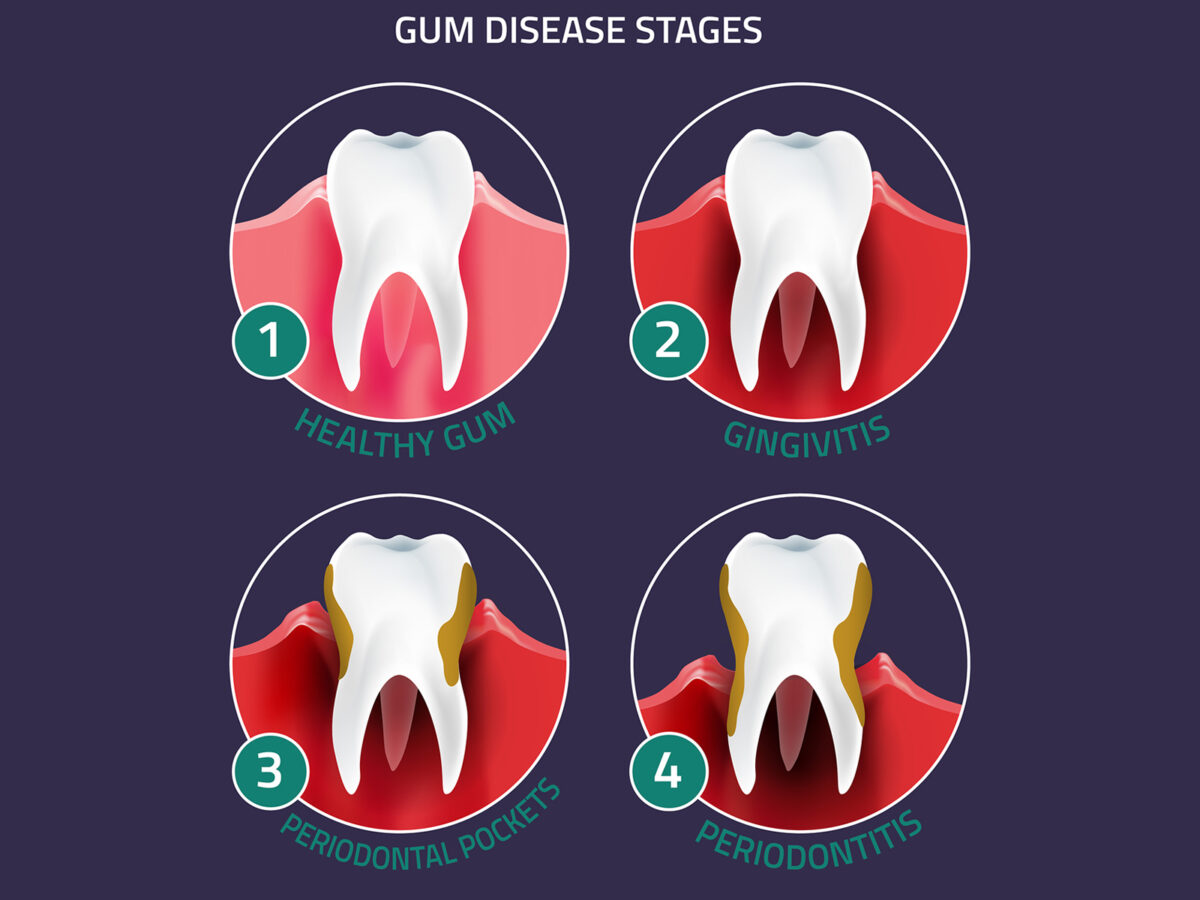Blog
Dental hygiene tips for healthy teeth & gums

Health Conditions That Periodontal Disease Can Cause
If you do not take proper oral care, then it can lead to more than just toothache and bad breath. Oral health is indicative of your overall well-being. In recent years lots of studies have revealed links between periodontitis and systemic diseases.
The idea that periodontal disease can lead to systemic diseases is not a new one and goes back over a century. Around 1900, a British doctor William Hunter identified links between oral sepsis and issues of other organs in our bodies. This theory was termed “focal infection.” This theory had its basis in clinical experiences such as the removal of infected teeth resulting in improved general health.
As per recent studies, many health conditions are linked to periodontal disease, including diabetes, kidney and heart disease, osteoporosis, Alzheimer’s disease, asthma, and cancer. As many as 120 plus conditions are currently being attributed to dental issues.
Possible Mechanisms of Dental Conditions Affecting Other Health Conditions
Two pathogenic mechanisms have been described to explain how periodontitis can result in other health conditions:
- Direct mechanism- With the progress of chronic periodontitis, the epithelium which lines periodontal pockets gets ulcerated, which allows periodontal bacteria to enter the systemic circulation. This circulating bacteria can then directly affect other organs.
- Indirect mechanism- Our bodies have an inflammatory response to periodontal bacteria, or the by-products of periodontitis can have indirect systemic effects. Inflammation by itself is responsible for many chronic illnesses, such as type 2 diabetes, cardiovascular diseases, and rheumatoid arthritis.
Reasons for Periodontitis
Plaque is a sticky substance that includes bacteria and builds up on our teeth. If plaque is not removed in time, our gums will swell and feel sore due to infection buildup. This stage of dental issue is called gingivitis. Gingivitis can be treated and reversed but left uncured, it leads to a more severe form of gum disease called periodontitis.
- Periodontitis occurs in four stages ranging from moderate to severe.
- This disease requires the intervention of dental professionals and can not be treated at home.
- If you have periodontitis, you would most likely lose permanent teeth and need dentures.
- Apart from poor oral hygiene, smoking is another big reason for periodontal disease.
- Certain health conditions like diabetes and cardiovascular illness make a person more susceptible to this disease.
- Certain medications are also responsible for causing periodontitis.
The Many Health Implications of Periodontitis
Gum disease is unpleasant, but a growing body of evidence has shown that gum disease can also be linked to a surprising range of seemingly unrelated health issues.
- Gum and brain – Though gum and brain are spatially close to each other, one would not link gum disease to brain conditions in general. But studies have shown that tooth disease or loss can impact cognitive function. Some of the other brain implications of periodontal disease are:
- A buildup of beta-amyloid in the brain is the hallmark of Alzheimer’s.
- A specific type of bacteria (Porphyromonas gingivalis) found in periodontitis is also found in the brain of people suffering from Alzheimer’s.
- Periodontitis and ACVD (Atherosclerotic Cardiovascular Disease) – In Atherosclerosis, the artery walls become thick because of the accumulation of fatty material and calcium found in plaques. Due to this, arteries stiffen and harden, increasing the risk of strokes, aneurysms, myocardial infarction, and angina.
- Gums and diabetes – In diabetes, there is an abnormal elevation of blood glucose level which is termed hyperglycemia. Type 1 diabetes makes up for ten percent of diabetic conditions in which our immune system attacks and destroys the cells that produce insulin. Another ninety percent of cases are Type 2 diabetes, where the body fails to produce enough insulin or the cells are insulin resistant. Those who suffer from severe periodontitis also have higher levels of HbA1C, a form of glucose-linked hemoglobin that impacts how well the body can control diabetes. The relationship between gum disease and diabetes is bidirectional, i.e, people with diabetes are more prone to bacterial infection in the mouth, and periodontitis can affect blood glucose control.
- Periodontitis and pregnancy – Pregnancy outcome is affected by periodontal disease, especially towards the end of gestation. If the mother has periodontitis, it is a potential source of circulation of microorganisms and can adversely affect the fetal-maternal unit. This could result in low birth weight, pre-eclampsia, and preterm birth.
- Gums disease and respiratory issues – Peridontitis can cause both COPD (Chronic Obstructive Pulmonary Disease) and pneumonia. With COPD, the airways get inflamed, and there is an obstruction in airflow. Pneumonia is the infection of the airways, which can be associated with the periodontal disease since many potential opportunistic bacteria are present in the oral cavity.
- Cancer risk with periodontitis – A type of bacteria (Treponema denticola), which is associated with periodontal disease, produces enzymes that are commonly found in certain tumors within the gastrointestinal system. This enzyme aids in invading bacteria within tissues in gum disease. This enzyme also activates other enzymes which advance into healthy tissues and promote cancer cells.
You might find that this article has a worrying collection of health conditions that are more likely to occur due to gum disease. But we can take a positive message from this discussion, i.e. maintaining good oral hygiene can reduce the risk of developing a range of severe health issues. Scheduling periodic dental checkups with your dentist will help you mitigate oral issues in their early stage and prevent their spread.
